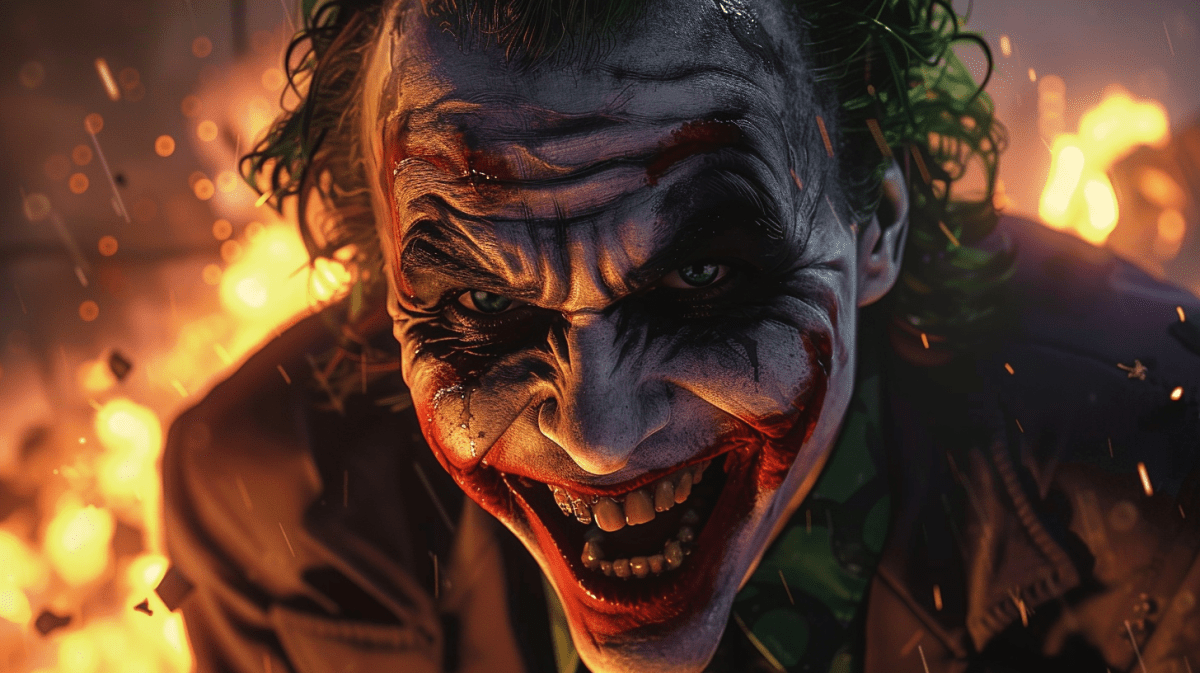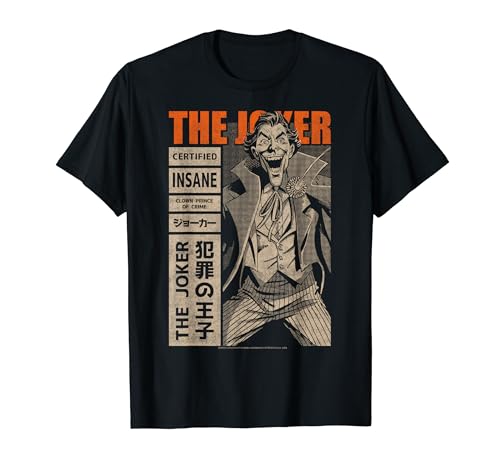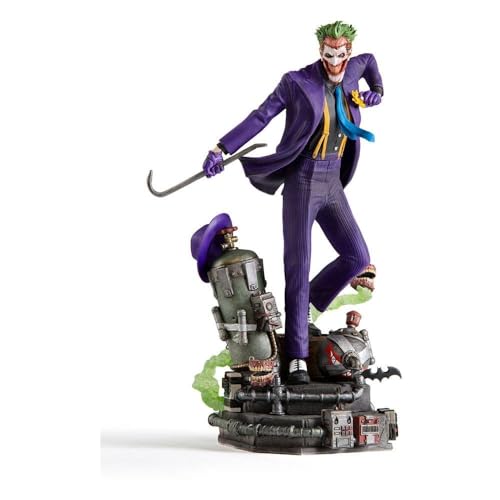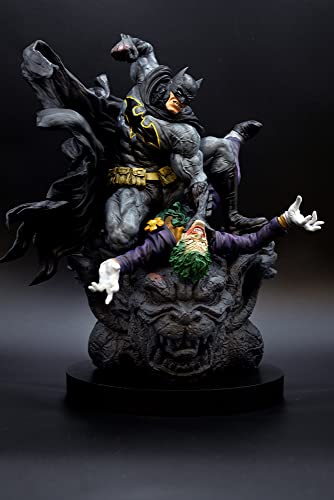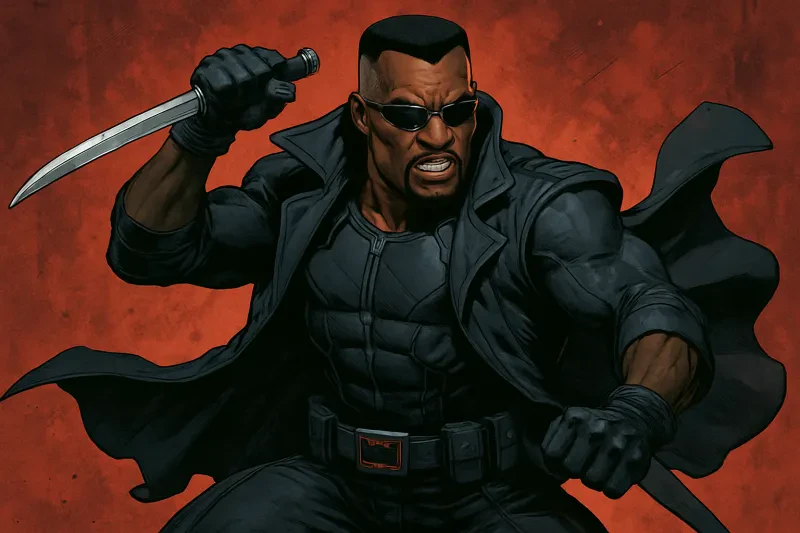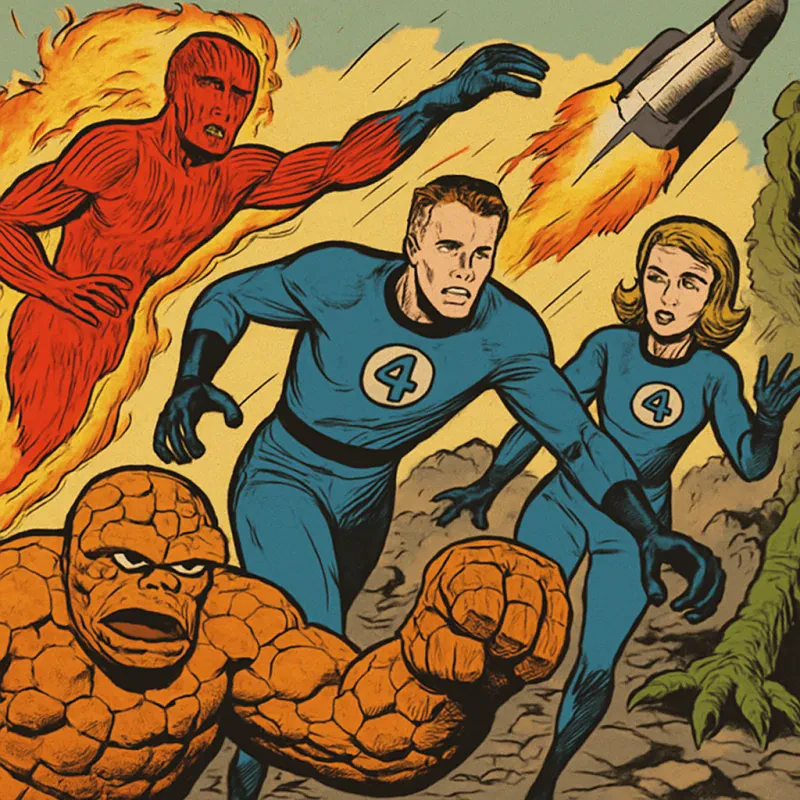The Joker is one of the most iconic and enduring characters in popular culture. Created by Bill Finger, Bob Kane, and Jerry Robinson, the Joker made his first appearance in Batman #1 in 1940. Since then, he has become Batman's arch-nemesis and a symbol of chaos and anarchy. The Joker's character has evolved over the years, appearing in various forms of media such as comic books, movies, and TV shows.
The Joker is known for his distinctive appearance, with his pale white skin, green hair, and a permanent smile carved onto his face. His personality is equally as striking, characterized by his unpredictability, sadistic sense of humor, and complete lack of empathy or morality. He thrives on chaos and seeks to disrupt society's order at every turn.
The Joker's origins and evolution in popular culture
The Joker's first appearance in comic books was in Batman #1, where he was portrayed as a homicidal maniac with a penchant for elaborate schemes and deadly pranks. Over the years, the character has undergone various interpretations in movies and TV shows.From Cesar Romero's delightfully campy portrayal in the 1960s Batman TV series to Joaquin Phoenix's haunting and troubled portrayal, the character of the Joker has been brought to life in a variety of captivating ways. each actor has brought their own unique take on the character.
The Joker's impact on popular culture cannot be overstated. He has become an iconic symbol of villainy and has inspired countless artists, writers, and filmmakers. His image has been emblazoned on merchandise ranging from t-shirts to action figures, making him one of the most recognizable characters in the world.
The psychology of a madman: What makes the Joker tick?
The Joker's mental illness is a central aspect of his character. While he has never been officially diagnosed, many experts believe that he exhibits symptoms of various disorders such as antisocial personality disorder, narcissistic personality disorder, and psychopathy. His motivations and goals are often driven by a desire for chaos and anarchy, as he seeks to dismantle society's norms and create a world of his own making.
What sets the Joker apart from other villains is his complete lack of empathy and morality. He has no regard for human life and takes pleasure in causing pain and suffering. His actions are not driven by a desire for power or wealth, but rather by a twisted sense of amusement. The Joker finds joy in the chaos he creates, reveling in the destruction and despair he leaves in his wake.
The role of trauma and abuse in the Joker's development
The Joker's traumatic past plays a significant role in shaping his mental health. In various iterations of the character's backstory, it is revealed that he has experienced significant trauma and abuse throughout his life. One common element is his relationship with an abusive father figure, which has left a lasting impact on his psyche.
The Joker's traumatic past has contributed to his mental health issues, fueling his descent into madness. It is through this lens that we can begin to understand the origins of his chaotic nature and sadistic tendencies. While it does not excuse his actions, it provides insight into the complex character that is the Joker.
The Joker Insane T-Shirt - DC Comics Official
Embrace chaos and style with The Joker Insane T-Shirt from DC Comics Official
Product information
$22.99
Product Review Score
4.98 out of 5 stars
36 reviewsProduct links
The Joker's personality traits and characteristics
Narcissism is a prominent trait in the Joker's personality. He craves attention and validation, often seeking to be the center of attention in any situation. This need for recognition drives him to commit heinous acts, as he believes that the chaos he creates will make him infamous.
The Joker's unpredictability is another defining characteristic. He thrives on chaos and enjoys keeping others off balance. His actions are often random and seemingly without purpose, making it difficult for others to anticipate his next move. This unpredictability adds to his mystique and makes him a formidable adversary for Batman.
Despite his chaotic nature, the Joker is also highly intelligent and possesses a strategic mind. He is a master manipulator, able to exploit the weaknesses of others to further his own agenda. His intelligence allows him to devise elaborate plans and schemes, often involving intricate traps and riddles for Batman to solve.
Understanding the Joker's sense of humor and its dark implications
The Joker's use of humor is a coping mechanism for his own pain and suffering. He uses laughter as a shield, hiding his true emotions behind a facade of mirth. This twisted sense of humor is often reflected in his actions, as he finds amusement in the suffering of others.
The Joker's dark sense of humor has profound implications for his actions. He uses jokes and pranks to taunt his victims, adding an extra layer of psychological torment. His laughter is a constant reminder of the chaos he brings, serving as a chilling soundtrack to his reign of terror.
The Joker's relationship with Batman and the concept of duality
The Joker's obsession with Batman is a central aspect of their complex relationship. He sees Batman as his ultimate foil, the one person who can truly understand and appreciate his chaotic nature. The Joker's actions are often driven by a desire to prove himself to Batman, to show that they are two sides of the same coin.
In many ways, the Joker serves as a reflection of Batman's own darkness. While Batman fights for justice and order, the Joker represents the chaos and anarchy that lurks within Gotham City. Their constant battle is not just physical, but also symbolic of the eternal struggle between order and chaos.
The Joker's impact on society and popular culture
The Joker's influence extends beyond the realm of fiction. His image has become an iconic symbol in fashion and art, inspiring countless artists and designers. From streetwear brands to high-end fashion houses, the Joker's distinctive look has been emulated and reimagined in various forms.
The Joker's impact on mental health awareness and stigma is also significant. His portrayal as a mentally ill villain has sparked discussions about the representation of mental illness in media. While some argue that it perpetuates negative stereotypes, others believe that it opens up conversations about the complexities of mental health.
The Joker Deluxe 1/10 Scale Collectible Figure
Capture the chaos of Gotham City with this highly detailed Joker collectible figure!
Product information
$199.49
Product Review Score
4.68 out of 5 stars
111 reviewsProduct links
The controversy surrounding the portrayal of mental illness in the Joker character
The Joker's portrayal as a mentally ill villain has faced criticism from some quarters. Critics argue that it perpetuates harmful stereotypes and stigmatizes those with mental health issues. They believe that the character's actions are portrayed as a direct result of his mental illness, reinforcing the idea that mentally ill individuals are inherently dangerous.
However, it is important to note that the Joker is a fictional character and should be viewed as such. While his portrayal may not be entirely accurate or representative of real-life mental illness, it provides an opportunity for discussion and exploration of complex psychological themes.
The Joker's influence on real-life criminal behavior and mental health stigma
There have been instances where individuals have cited the Joker as an inspiration for their criminal actions. The connection between the character and real-life mass shootings has raised concerns about the impact of media on public perception of mental illness.
It is crucial to recognize that these instances are rare and do not represent the majority of individuals with mental health issues. Mental illness should not be used as a scapegoat for acts of violence, as it only perpetuates stigma and further marginalizes those who are already vulnerable.
Lessons learned from the Joker's psychology and its relevance in today's society
The Joker's psychology provides valuable insights into the complexities of mental illness and trauma. It reminds us of the importance of understanding and addressing these issues in society. Accurate representation of mental illness in media is crucial, as it can shape public perception and contribute to the destigmatization of mental health.
The impact of popular culture on society's perception of mental health cannot be underestimated. It is essential that we critically engage with the media we consume and challenge harmful stereotypes. By doing so, we can foster a more compassionate and understanding society that supports and empowers individuals with mental health issues.
Batman Vs Joker Sculpt Master Series Limited Edition
Product information
$339.99
Product Review Score
4.77 out of 5 stars
126 reviewsProduct links
#joker #thejoker #batman
